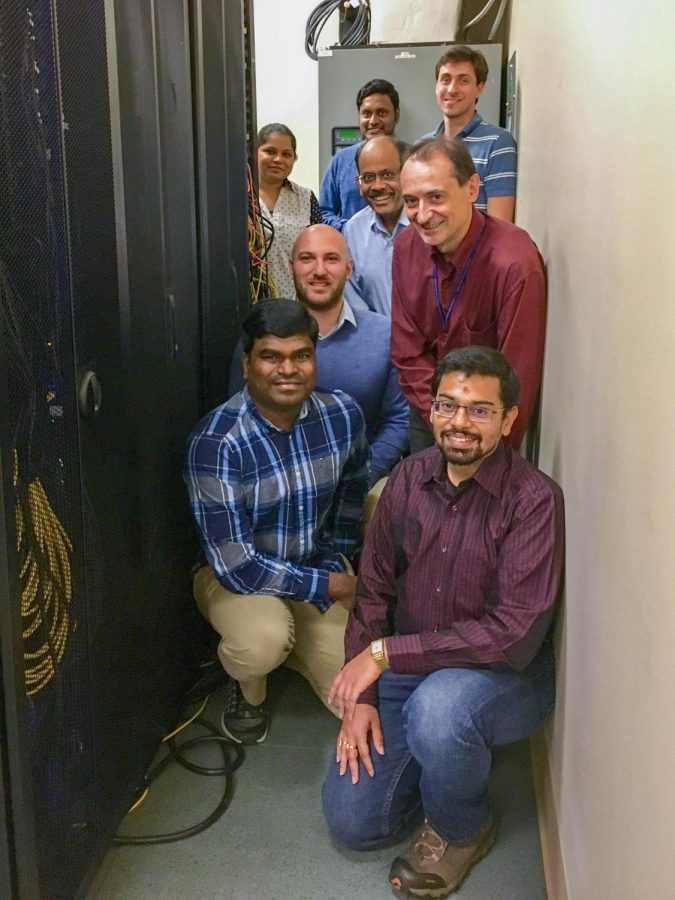UI professors receive $1.2 million grant to improve computer efficiency
Nov 1, 2018
Three Engineering professors received a $1.2 million grant across a four-year span from the National Science Foundation for their research on improving computer efficiency.
The recipients are Josep Torrellas, Laxmikant Kale and David Padua, all in the Department of Computer Science.
Torrellas said computers use too much energy and can sometimes become extremely hot, reaching up to 212 degrees Fahrenheit, so the team is trying to decrease the temperature and reduce power consumption.
The amount of power generated for computers by power generation plants is a significant fraction of the energy consumed by the world, he said.
“So current situation we are finding ourselves in, we’re not dealing with just the speed, but we have the worry with speed, energy, temperature and power,” Torrellas said.
Get The Daily Illini in your inbox!
Raghavendra Pothukuchi, doctoral student in Engineering who helped write the proposal for the research, said efficient computer systems will help people solve their problems better.
“It could be just a person who wants their phone to be smarter and lasting longer,” he said. “It could be a researcher who wants to get a new drug or find or new mechanism to using computation because their system is more efficient, they can use more machines and get to their solutions faster. So it enables a wide variety of things.”
Torrellas said the research focuses on eliminating unnecessary operations in computers and making remaining operations more efficient. Computer chips can be used to determine how much work the computer can process and the maximum temperature the computer can reach.
The research team does not expect to fully solve the problem within four years but are hoping to make some progress in solving issues related to reducing the energy consumption of computers.
Kale’s role in the project focuses on parallel programming and runtime systems. Parallel programming uses multiple computers to solve a problem, which divides work and improves efficiency. Runtime system is a part of the computer’s software that oversees the tasks done in a parallel program.
On the other hand, Padua focuses on compilers, which take a programmer’s code and turn it into another language computers can comprehend. He said there are too many communication pathways within computers and he wants to use the funding to save energy by writing programs to reorganize and reduce communication.
The team is building a hardware controller in a cluster, which is a group of connected computers working together to control the computers’ processors and distribute power to the working units.
Roughly 10 percent of the funds will be used to purchase materials for testing, but the rest will be used to pay graduate and post-doctoral research students.
Pothukuchi said he was happy to find out the team received the grant.
“At the time of the submission, I was a bit nervous,” Pothukuchi said. “Sometimes I used to think maybe we wouldn’t (win) because there are a lot of people working on the same area. Sometimes I think we have some edge because we worked with industry like Advanced Micro Devices and showed this area has promise.”
Torrellas said the reason for writing the proposal is the collaboration with Advanced Micro Devices, a company that manufactures computer chips. He said engineers from the company helped guide the team on what changes it should make.
“All of these things are going to lead back to society. We are working with computer science and engineering to make a big societal impact, (which is) what you get to do when you work on parallel computing,” Kale said.
Correction: A previous version of this story misidentified Raghavendra Pothukuchi as a post-doctoral student. The Daily Illini regrets this error.






